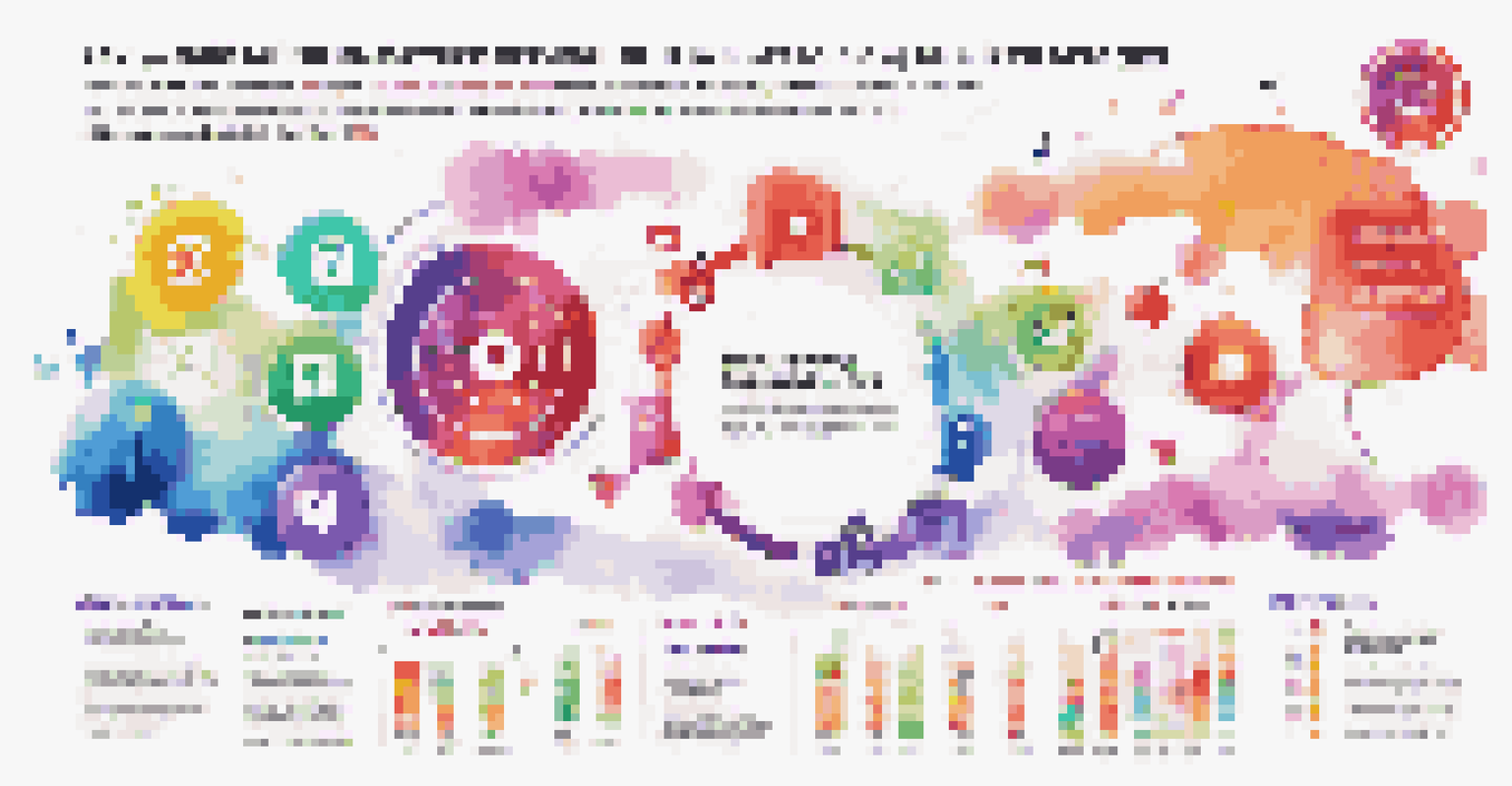How to Utilize Social Media for Music Promotion Strategies

Understanding Your Audience on Social Media Platforms
To effectively promote your music, it's crucial to understand who your audience is. Take the time to research their demographics, interests, and the platforms they frequent. This insight will help you tailor your content to resonate with them, increasing engagement and connection.
Social media is about the people! Not about your business. Provide for the people and the people will provide for you.
For example, younger audiences may prefer TikTok and Instagram, while older listeners might be more active on Facebook. By identifying these preferences, you can create specific strategies for each platform, ensuring your message reaches the right ears and eyes.
Engaging with your audience through polls, questions, and interactive content can further enhance your understanding. This two-way communication fosters a community around your music, making fans feel valued and more likely to support you.
Creating Engaging Content That Captures Attention
In a world inundated with content, standing out is essential. Your music promotion strategy should focus on creating engaging content that not only showcases your music but also tells a story. Whether it’s behind-the-scenes footage, lyric snippets, or personal anecdotes, the goal is to draw listeners in.

Consider using visuals, such as eye-catching graphics or high-quality videos, to complement your posts. A compelling video teaser of your latest single can generate buzz and excitement among fans, making them eager to listen when it drops.
Know Your Audience for Success
Understanding your audience's demographics and preferred platforms allows you to tailor your content and enhance engagement.
Remember, authenticity is key. Share your journey, struggles, and triumphs to create a deeper connection with your audience. When fans see the real you, they’re more likely to support your music and share it with others.
Leveraging Influencer Collaborations for Wider Reach
Influencer marketing has become a powerful tool in the music industry. By collaborating with influencers who have a strong following, you can tap into their audience and gain exposure to potential new fans. Choose influencers whose brand aligns with your music style to ensure the partnership feels authentic.
Content is king, but engagement is queen, and the lady rules the house!
For instance, if you're a hip-hop artist, collaborating with a popular lifestyle influencer who shares similar interests can create a natural synergy. This way, their followers are more likely to appreciate your music, leading to organic growth of your fanbase.
When working with influencers, consider co-creating content or having them promote your music directly. This could be through shoutouts, curated playlists, or even live-streaming events together. Such strategies can significantly enhance your visibility and credibility in the music scene.
Utilizing Hashtags and Trends to Boost Visibility
Hashtags are a simple yet effective way to increase your music's visibility on social media. By incorporating relevant hashtags into your posts, you can reach a broader audience beyond your current followers. Research popular music-related hashtags and include them in your promotional content for maximum impact.
For example, using hashtags like #NewMusic, #IndieArtist, or #MusicMonday can connect you with users actively searching for new tunes. Additionally, participating in trending challenges or themes on platforms like TikTok can give your music a fresh boost and engage users who may not have discovered you otherwise.
Create Engaging and Authentic Content
Crafting compelling stories and visuals while remaining authentic helps to connect with your audience and build a loyal fanbase.
However, it's essential to strike a balance—don't overload your posts with hashtags. A concise and targeted approach, typically using 5-10 relevant hashtags, can help maintain clarity while still enhancing reach.
Building a Consistent Posting Schedule for Engagement
Consistency is key when it comes to social media promotion. Establishing a regular posting schedule not only keeps your audience engaged but also helps build anticipation for your music releases. Decide on the frequency of your posts—whether it’s daily, a few times a week, or weekly—and stick to it.
Utilize social media management tools to plan and schedule your content in advance. This can save you time and ensure that your posts align with your promotional calendar, such as album releases or concert announcements.
Additionally, pay attention to the timing of your posts. Analyzing when your audience is most active can maximize engagement. For instance, posting in the evening when people are winding down can lead to more interactions and ultimately, more fans discovering your music.
Engaging with Fans to Create a Loyal Community
Social media is not just a platform for promotion; it’s an opportunity to engage and build relationships with your fans. Responding to comments, messages, and even conducting live Q&A sessions can help foster a sense of community. When fans feel acknowledged, they’re more likely to support your music and share it with others.
Consider creating exclusive content for your followers, such as sneak peeks of new music or personal stories about your songwriting process. This not only makes them feel special but also keeps them invested in your journey as an artist.
Analyze and Adapt Your Strategy
Regularly reviewing analytics helps you identify effective tactics and adjust your approach to stay relevant in the ever-changing social media landscape.
Remember, the goal is to cultivate a loyal fanbase that feels connected to you and your music. By nurturing these relationships, you'll create a strong community that supports you through every stage of your musical career.
Analyzing and Adapting Your Strategy Based on Insights
Finally, it’s essential to analyze the performance of your social media efforts regularly. Most platforms offer insights and analytics tools that show how your posts are performing, including engagement rates, reach, and audience demographics. By reviewing this data, you can identify what’s working and what’s not.
For example, if you notice that video content consistently performs better than static posts, you might want to focus more on creating engaging videos. Similarly, if certain hashtags lead to higher engagement, incorporate them more often into your strategy.

Adapting your approach based on these insights ensures that your music promotion remains relevant and effective. Social media is ever-evolving, and staying responsive to trends and audience preferences is key to maintaining a strong online presence.